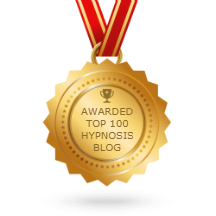by Hervé Boisdé
In the years that I’ve been practicing hypnotherapy I’ve noticed a shift in the way that hypnotherapy is being perceived, not just by new clients, but also by the medical and psychotherapy community. Previously I sensed a skepticism from many traditional therapists, most didn’t have a good idea of what it was and some were reluctant to encourage their patients to seek out hypnotherapy except for maybe smoking cessation or weight management. Today things are different.
I think the main thing is that there has been a shift in popular culture as to the benefits of mindfulness and meditation. Years ago only a small percentage of New Yorkers would take time to meditate regularly. More recently it seems like everyone meditates. First came yoga and doing poses to balance their body and minds, now people are turning to mindfulness through quiet meditation.
The scientific research is overwhelmingly positive about meditation. The medical community accepts that stress and anxiety are huge factors that affect health, and the mind-body connection is recognized as a reality. Doctors who previously would have written prescriptions for everything are now recommending therapy and/or meditation to their patients.
And while physicians and most licensed mental health professionals don’t learn about hypnotherapy in their schooling, they are reading the articles and studies about it’s benefits. They are also hearing about their patients’ experiences with hypnotherapy, so they have more second-hand knowledge than in the past. But it’s the scientific studies about hypnosis that have really created the real change in how hypnotherapy is viewed as a legitimate and beneficial alternative to traditional methods.
Studies that are mentioned in articles such as this one in New York Magazine, (Nov. 21 2016) “Has Hypnosis Finally Been Vindicated By Neuroscience?” , indicate that the brain goes through measurable shifts and changes while in hypnosis, just like meditation. Neuroscience has been the cutting edge of biology science for the past few decades so any advances in neuroscience generates a lot of publicity and becomes a hot topic.
Even back in 2005, The NY Times published an article titled “This Is Your Brain Under Hypnosis” which stated in the first sentence “Hypnosis, with its long and checkered history in medicine and entertainment, is receiving some new respect from neuroscientists. “ It’s my belief that stage hypnosis set clinical hypnotherapy back for decades, if not over a hundred years, by associating hypnosis with entertainment and foolish behavior. Fortunately that is now in the past when respected publications print evidence from scientific studies that show that clinical hypnosis can heal the mind and the body. That same NY Times article acknowledged that hypnosis was being used effectively for many years, even if science didn’t understand how or why it worked:
Even with little understanding of how it works, hypnosis has been used in medicine since the 1950's to treat pain and, more recently, as a treatment for anxiety, depression, trauma, irritable bowel syndrome and eating disorders.
Back in 2010, Psychology Today published an article entitled “Hypnosis: An Underused Technique” that encouraged psychiatrists to become trained in hypnosis for therapeutic use. The author (an M.D. and psychotherapist ) stated that:
Hypnosis can help patients working on issues such as smoking cessation, weight control, nail biting, phobia mastery, insomnia, anxiety, including PTSD, poor sexual function, obsessive thinking, and stress-related problems that might be rooted in such physical problems as hypertension, headache, or chronic pain problems. Hypnosis can be an effective aid in treating these problems. But not enough psychiatrists, psychologists, and psychotherapists use hypnosis or understand what it can and cannot do.
It’s clear that clinical hypnosis and hypnotherapy have become more mainstream, and with good reason. The scientific community, backed by neuroscience, has come to recognize the clinical uses for it’s use to benefit the mind and the body. And further research will probably become even more common as communities seek alternatives to expensive and addictive treatments for pain management, rather than opioids, and less invasive medical procedures. .

